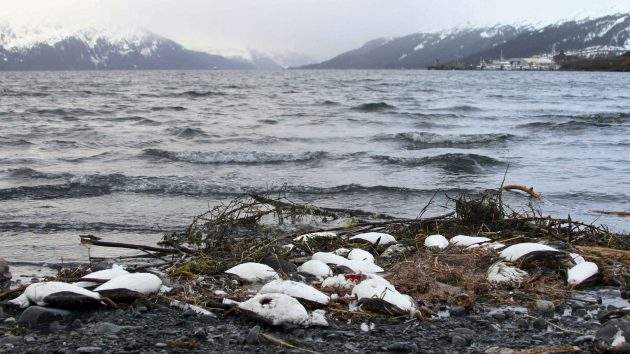On the heels of new research showing that the world’s oceans are rapidly warming, scientists revealed Wednesday that a huge patch of hot water in the northeast Pacific Ocean dubbed “the blob” was to blame for killing about one million seabirds.
This heatwave is unpoetically referred to as “the blob.” Scientists uncovered the news after 62,000 common murres (Uria aalge) washed up ashore between 2015 and 2016. It seemed as though they had died of starvation.
In total, researchers believe around one million seabirds died of the same causes in the area.
John Piatt of the U.S. Geological Survey wondered, “The amazing question is, how could a million die over 6000 kilometers, pretty much all at the same time, and what could cause it.”
Furthermore, the sheer magnitude of these seabirds deaths over those years had researchers scratching their heads in wonder. Given the birds were so well adapted to that geographical area, it made no sense that they should die en masse in such a way.
After looking into the issue, it turns out that “the blob” is to blame.
This is a large, record-breaking patch of warm water that occurred off the west coast of the U.S. between 2013 and 2016.
By observing the beached murres, sea surface temperatures and fisheries information, Piatt and his team were able to come up with the plausible explanation of “the blob.”
With warmer waters, fish in the area such as cod had to feed on more fish so as to regulate their core body temperatures. This minimized the amount of fish available for the murres to feed on. If these birds aren’t able to eat half of their body mass worth of food every day, they die within only three to five days.
“It’s very convincing, and I would actually say it’s fairly conclusive. There’s very little else that could have caused the extensive effects they document,” said Andrew Leising of the U.S. National Oceanic and Atmospheric Association.















